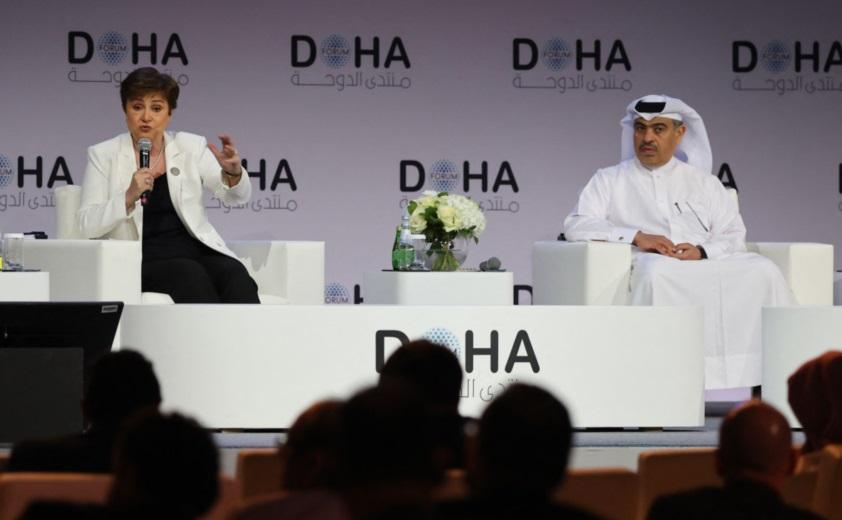
The head of the International Monetary Fund (IMF) is warning that the global economic strain caused by Russia’s war in Ukraine could stoke civil unrest in the Middle East and beyond.
Speaking at the Doha Forum in Qatar yesterday, Kristalina Georgieva said Russia’s invasion and the resulting sanctions on Moscow have forced the world’s poorest to bear the worst of the crisis as they grapple with inflated food costs and scarcer jobs.
Georgieva hinted that the current situation evoked the lead-up to the 2011 uprisings known as the Arab Spring, when skyrocketing bread prices fueled anti-government protests across the Middle East.
“When prices jump, and poor people cannot feed their families, they will be on the streets,” she said. “One thing we know about trouble in one place, it travels, it doesn’t stay there.”
Georgieva called for greater global cooperation to fill the gaps in commodity and energy supplies.
“Please, work together,” she said. “Oil producers, gas producers and food producers today are in a position to help reduce this uncertainty.”
She cited Ukraine’s importance as a top wheat exporter in urging a swift resolution to the war.
“The faster the tanks are out, the faster the tractors will be in,” she said. “We need by July the harvest in Ukraine to contribute to the stability of food prices.”
Meanwhile, talks between the Lebanese government and the IMF over an economic recovery plan should make progress in the next two weeks, Prime Minister Najib Mikati said on March 26.
Speaking to reporters in Qatar, Mikati said an IMF delegation will resume talks with the government in Beirut tomorrow over the country’s economic meltdown that began more than two years ago.
A main sticking point in the talks has been estimating the amount of financial losses. But late last year, Deputy Prime Minister Saadeh Shami, who is heading the talks with the IMF, put the losses of the financial sector at $69 billion.
“Hopefully it’s going to take, I guess, two weeks and by the end of the two weeks we can see the light differently,” Mikati said in English about the next round of talks. He added that Lebanon has no other option but to reach an agreement with the IMF.
Mikati said Lebanon’s economic meltdown, described by the World Bank as one of the worst the world has witnessed since the 1850s, has been made worse by the war in Ukraine.
Lebanon’s economic crisis that began in October 2019 is rooted in decades of corruption and mismanagement. It has left three-quarters of the population of 6 million people, including 1 million Syrian refugees, in poverty. The Lebanese pound has lost more than 90 percent of its value.